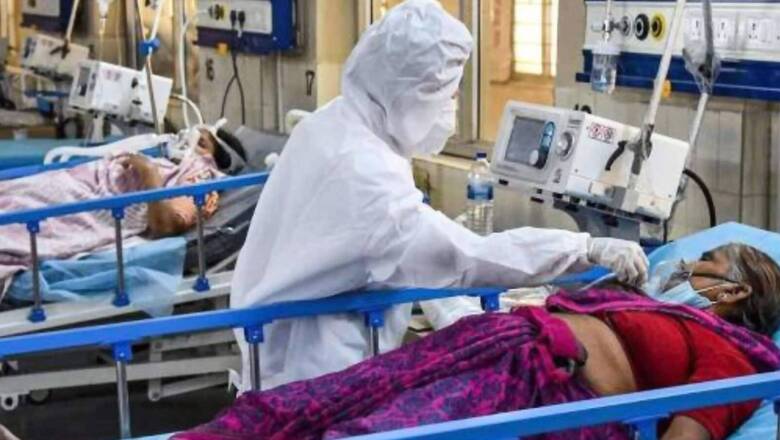
views
Covid-19 could cause diabetes in people who may not have otherwise developed the disease, said an analysis published in a medical journal, The Lancet.
The author of the analysis also found that Covid-19 may work as an amplifier of baseline risks and an accelerant of disease development. Previously, multiple evidences suggested that the myriad clinical abnormalities of long Covid might extend to new-onset diabetes, the analysis by Washington-based scientist Ziyad Al Aly, published in a commentary section of The Lancet said.
The article emphasises that several research questions will need to be answered in the near future as the world is still trying to understand the long-term side effects of Covid-19.
Epidemiologist Aly, who works at Institute for Public Health, Washington University in Saint Louis, investigated whether there was an association between new-onset diabetes and Covid-19.
JOINING THE DOTS…
“Together with my colleague Yan Xie, we used data from the US Department of Veterans Affairs to characterise the risk and 12-month burden of diabetes in 1,81,280 people with SARS-CoV-2 infection versus two control groups,” said the analysis titled ‘Diabetes after SARS CoV2 infection’.
These two control groups were divided into 41,18,441 contemporary controls who were enrolled during the same time, but did not get infected with SARS-CoV-2 and 42,86, 911 historical controls from before the pandemic.
Their findings suggested that compared with both the contemporary and historical controls, people with SARS-CoV-2 had an increased risk of incident diabetes and incident use of antihyperglycemic therapy (anti-diabetic medications) in the post-acute phase or in the long term.
“Interestingly, compared with non-infected controls, the increased risk of diabetes (more than 99% was type 2 diabetes) was evident even in people who had very low baseline (pre-COVID-19) risk of diabetes according to traditional risk factors, including age, race, sex, body-mass index, hypertension, and hyperlipidaemia,” the analysis found.
Among people with Covid-19, the risk of diabetes increased in a graded fashion according to the baseline risk of diabetes, which is the traditional baseline characteristics that predict the risk of developing diabetes in an individual.
LIMITATIONS AND WAY FORWARD
The main limitation of the study was that the participants were primarily white males.
Due to the paucity of studies, the evidence base of new-onset diabetes following Covid-19 in children is far less well-developed and, in fact, the evidence for increased risk of diabetes after SARS-CoV-2 infection is not universally consistent.
For instance, the author wrote, “A Scottish study in people younger than 35 years documented a 20% increase in the incidence of type 1 diabetes during the pandemic in general, and an increased risk of type 1 diabetes within, but not beyond, the first 30 days of SARS-CoV-2 infection.”
The analysis suggested that there could be a “possible coexistence of two pathways that should be investigated in mechanistic studies”.
First is the possibility of Covid-19 leading to de novo disease in people, who might have otherwise not developed diabetes, and other is “Covid-19 as an amplifier of baseline risks and accelerant of disease development.”
The author concluded that the “robust research agendas to better understand long COVID (and all its components including the increased risk of diabetes), prevent it, and treat it are urgently needed.”
INCREASED RISK OF DIABETES ESTABLISHED PREVIOUSLY
Several previous studies have previously highlighted the trend.
The US Center of Disease Control (CDC) analysis of an extensive electronic healthcare database of more than 3.50 lakh adults with Covid-19 and 16.40 lakh controls with no evidence of infection, suggested that people with COVID-19 had an increased risk of new-onset type 1 diabetes and type 2 diabetes.
Moreover, a German cohort study of 35,865 people with Covid-19 showed a higher risk of newly diagnosed type 2 diabetes than an equal number of matched controls with acute upper respiratory tract infections.
Also, the latest study from the US Department of Veterans Affairs involving more than 1.3 crore individuals suggests that compared with non-infected controls, both unvaccinated and vaccinated individuals with SARS-CoV-2 infection are at an increased risk of diabetes. It also found that the risk of diabetes in the long term was not significantly different in people who had Covid infection after vaccination than unvaccinated individuals.
Read all the Latest India News here

















Comments
0 comment